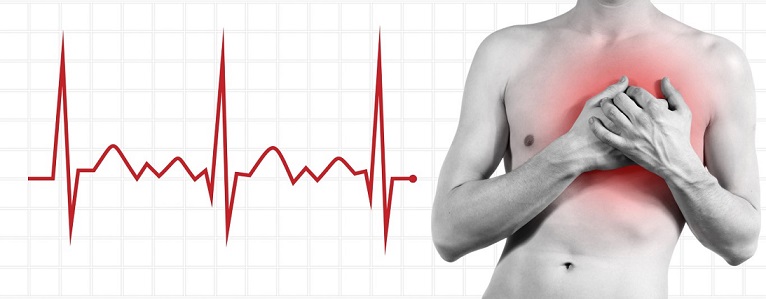For a healthy and normal adult who is resting, the heart should beat around 60 to 100 times within sixty seconds. Tachycardia is the name given to the condition of elevated heart rate when the person is resting. During tachycardia, the heart rate is either elevated in the upper heart chambers or the lower heart chambers or in some cases in both the chambers.
Elevated heart rate when sick can be worrisome, as people don't know the answers to questions like "Does heart rate increase when sick? Let's investigate these questions to understand when elevated heart rate isn't an issue and when you should be worried by increased heartbeat.

Does Your Heart Beat Faster When You Are Sick?
The heart functions differently when the body feels stressed or when the body is fighting an infection in order to help the body fight the stress and infection. To help out, the heart accelerates the rate at which it beats so as to facilitate the circulation of oxygen and immune cells which are needed to initiate the healing process. Bacteria or infection that causes a disease and is accompanied with fever often causes the heart rate to rise.
However, it's not just bugs and bacteria which get such a response from the heart. Emotional troubles like anxiety or depression can also cause elevated heart rate. It's important to keep a check on your heart rate by ensuring that your blood pressure is checked every now and then. If you find your blood pressure and heart rate elevated most of the times then you should immediately book an appointment with a doctor.
This is especially important if you find your heart rate elevated even without any obvious cause. Elevated heart rate when sick is understandable but elevated heart rate while you are resting is a worrying sign. To put it simply, if you find your heart rate over 85 while you are resting and can't find any logical or obvious explanation for it then you should contact your doctor right away. There are many cases of tachycardia in which the heart rate soars to more than 200 beats every minute and brings symptoms like dizziness and shortness of breath.
What Others Have Experienced
Some people experience elevated heart rate when sick and opine that this usually happens to them when their body is fighting an infection. Here is one patient telling about his experience of higher heart rate when sick and here is what he has to share:
"My heart rate shot up very quickly while I was suffering from pharyngitis and my parents ended up calling the doctor after seeing me short of breath. When I told the doctor that I felt that my heart was beating too quickly and that I was feeling terrified, the doctor replied that this is normal for the heart when the body is fighting an infection. And right on cue, as soon as the body got rid of the infection, my heart started beating normally again.”
Another individual who experienced elevated heart rate had this to say:
“I have been pretty worried over the past few weeks and this has resulted in frequent panic attacks. I have been noticing that whenever I am very anxious or going through a bout of panic attack, my pulse starts racing. One fine day, I had a sore throat and my heart rate became very high just as I moved a bit to go to the washroom. My doctor told me that there was no real cardiac issue and that the tachycardia was actually caused by anxiety.”
Other Causes of Elevated Heart Rate
Elevated heart rate when sick is actually your heart's aid in order to quell the sickness. However, there can be other causes as well. Electrical signals produced and sent to the heart tissues are responsible for controlling the heart rate. The occurrence of tachycardia is a result of abnormal heart behavior which causes the heart to produce and send electrical signals at a more rapid rate.
Many things can contribute to malfunction in the heart's electrical system. For example:
- Heart disease that damage heart tissues
- Exercise
- Anemia
- Smoking
- Medication side effects
- Sudden stress, such as a fright
- Disease or congenital abnormality of the heart
- High blood pressure
- Fever
- Excessive alcohol or caffeinated beverages consumption
- Abuse of recreational drugs, such as cocaine
- Hyperthyroidism
Note that the exact cause of elevated heart rate can't be determined in some cases.
